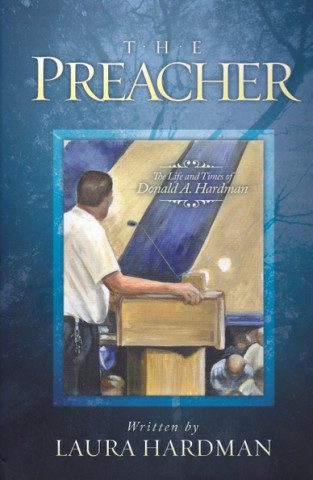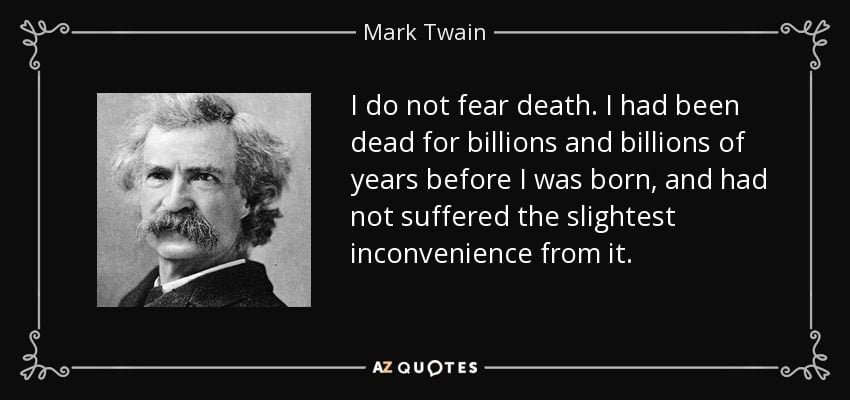
Repost from 2015. Edited, rewritten, and corrected.
Laura Hardman, wife of Independent Fundamentalist Baptist (IFB) Evangelist Don Hardman, has written a biography about her husband titled. The Preacher: The Life and Times of Donald A. Hardman. This self-published book is 201 pages long. In 2010, Laura published an autobiography titled Laura’s Light. You can read my review of the book here.
Like Laura’s Light, The Preacher reads quite a bit like the Bible. Don Hardman’s story is one of bondage to sin and deliverance from that sin through the blood of Jesus Christ. Also, like the Bible, it is littered with fictions and omissions. I will illustrate some of these fictions and omissions later.
While the book is meant to be a biography of Don Hardman’s life, it is sparse on details, except for those that paint Don in a favorable light. In the preface, Laura states:
I will endeavor to write about a man whom I watched God transform into literally another person over the last thirty-seven years. It is my desire not to glorify or make much of what he did when he was lost, but make much of his new life in Christ.
In other words, the past is the past, it is under the blood, praise Jesus! Time to move on. The greater objective, according to Laura, is for some “sinner or saint” to “read this biography and realize there is hope for a victorious life, not only when we get to heaven, but also here as we walk in this world.” Laura wants readers to know that they too can be just like Don and Laura Hardman and achieve the victorious Christian life.
The book has eight chapters:
- A Struggle Through Childhood
- No Purpose for Life
- Time for Change
- The Call of God
- Just a Servant of the Lord
- A Street Preacher
- The Chance of a Lifetime
- The Life of Evangelism
These eight chapters take up 142 pages. The other 70 pages are what Laura calls a “Summary and Sketches of What the Preacher Said.” While Laura had uncounted recordings of Don’s sermons that she could have transcribed, she instead decided to summarize thirty of his sermons. While Laura says the reason for doing this is because “the Lord laid on my heart that giving a short essay and sharing how the people reacted might be more edifying,” I suspect the real reason for not transcribing Don’s sermons is because he often preached for sixty to ninety minutes. Over the years, Don lost meetings because he refused to shorten the length of his sermons.
Chapter one details Don’s birth in Canton, Ohio in 1950, his battle with polio, and a bit about his parents, brother, and grandparents. The chapter ends with Don graduating from high school — a rebellious young man who frequently skipped school, hung out at pool halls, smoked, drank beer, and rarely thought about God. According to Laura, Don graduated in May of 1968 “with a diploma in hand and no purpose in life.”
What’s interesting is that Laura makes no mention of the fact that Don married a thirteen-year-old girl by the name of Cheryl, one month before he graduated from high school. At the time of their marriage, Cheryl was four months pregnant and both Don and she were wards of the court. While I can certainly understand why Laura might not want to mention this, wouldn’t this juicy tidbit enhance Don’s sinner-to-saint story?
In chapter two, Laura skips Don’s marriage to Cheryl, the birth of their two children, Joe and Tangi, and their foster daughter Shelly. Again, if what I am being told is correct, there are plenty of stories that Laura could have shared from this period that would have enhanced Don’s sinner creds. Outside of mentioning Don’s drinking habit, nothing more is said about Don’s life until May of 1977. During this nine-year period, Don was married to Cheryl. An uninformed reader would assume that Laura is Don’s first wife, and that Joe and Tangi are her biological children. In my review of Laura’s first book, I wrote:
Two children were born of Don’s first marriage. Laura claims the children as her own, a claim I suspect the biological mother finds quite offensive (a woman I have corresponded with over the years). While Hardman does say Don had two children, she never calls herself their step-mother. In her mind, when Jesus came into their life EVERYTHING became brand-new and that included the children having a new mother.
In May of 1977, Don, Laura, and their two children moved to Findlay, Ohio so Don could begin working for Ashland Oil. According to Laura:
In June of 1977, things seemed to be going great for us as a family. We moved into a government house on 1143 Concord Court, Findlay, Ohio. Our neighborhood was made up drunks, unmarried couples living together, and a slew of hoodlum kids. Needless to say, we added to their list of hoodlums. Little did we know that this wicked little neighborhood would become a mission field in the months to come.
Laura may have forgotten that I lived in Findlay in the 1970s — grades eight through eleven. I am quite familiar with the neighborhood the Hardmans lived in. The house in question is a single-family dwelling. At the time the Hardmans moved into the house it was around twenty years old. I seriously doubt that the home was government housing. It is possible that it was Section 8 housing, but this would mean that the Hardmans were either on welfare or quite poor. Having already stated that Don had a job at Ashland Oil — which was a well-paying job in the 1970s — it is unlikely that the Hardmans were poor or on welfare. (Put 1143 Concord Court into Google Earth or Google Map and take a street view look of the house and neighborhood.)
As far as the Concord Court neighborhood is concerned, I seriously doubt the neighborhood was as Laura describes it. While my memory is certainly not what it once was, I do remember that the Concord Court area was a working-class neighborhood of moderately priced, small homes — not unlike the neighborhood on National Court that my parents, siblings, and I lived in the 1970s.
If my memory is correct, what are we to make of Laura’s description of the neighborhood? The easy answer would be that she is lying and that certainly might be the case. However, I am more inclined to believe that this story, like much of The Preacher’s Life, is like a testimony given during Sunday night church. Over the years, I heard hundreds of testimonies, often from people who told the same story over and over. I found that, over time, the stories become more exciting. A story that started out with a person being a drug user years later became the story of a person selling heroin for the mob. As we age, we tend to change, reformulate, correct, and expand the narratives of our lives. The challenge for any reader is to be able to pick the facts out of the bullshit.
Chapter three details Don’s and Laura’s salvation experience. On June 20, 1977, Paul Reimer, pastor of First Baptist Church and church deacon Mike Roberts visited the Hardman home and shared the gospel with Don and Laura. After Reimer had shared the good news with them and Roberts gave a personal testimony of what Jesus had done for him:
Don was the first to take a step forward, and prayed to God for forgiveness. Because we did not know how to pray, they led us in a prayer. Our hearts had been smitten and conviction brought tears to our eyes. We understood for the first time in our lives what Jesus had suffered for us on the cross that we might have life. Our lives were heavily burdened down with guilt and shame, and the chains of sin kept us shackled to the old life. Now we are given the choice of Freedom in Christ or Bondage withe the devil. It’s doesn’t seem like much of a choice even though many choose bondage with the devil.
Shortly after Don cried out to God, I also gave my life to God. We literally gave our lives to Christ!
The next Sunday, the Hardmans walked the aisle at First Baptist Church and made their profession of faith public. Several weeks later, they were baptized, and not long afterward they stopped smoking and drinking beer.
Laura writes:
It took about four months of battling our flesh, but God did give us the victory. At the beginning, we only went to church on Sundays, but realized how important that midweek service was in our growth. Not only did I watch a thrice-Holy God changing my life, but also transforming my husband into another man, from a man whose mouth had a cuss word coming out every other word, to one thanking and praising God.
These excerpts are typical of testimonies of those saved in IFB churches. Years ago, an Amish-Mennonite neighbor confided in me that he was troubled because he didn’t have a sin to salvation story like Baptists have. Raised in the church — a devout Amish-Mennonite — he grew into salvation. He wanted to know if his salvation was defective because he didn’t have any bad sinner stories to tell. His question illustrated the fact that IFB congregants and preachers play up the bad sinner part of their testimonies. Everyone wants to be viewed as the baddest sinner in town, a sinner whom God miraculously delivered. As I mentioned previously, most of these testimonies are a mixture of lie, half-truth, fabrication, and fact.
The Hardmans were saved in an era when the IFB churches made much of bad sinner testimonies. While these testimonies were meant to give God all the glory, what they really did was make much of the sinners and their debauched lives before Jesus. Who wants to hear the testimony of the aforementioned Amish-Mennonite man when they can hear the testimony of Mike Warnke, Chuck Colson, Pat Boone, Joanna Michaelsen, and Eldridge Cleaver?
Nine months or so later, in the spring of 1978, “God spoke to his (Don’s) heart about full-time service.” According to Laura, a short time later, God gave Don his life verse, 2 Timothy 4:5:
But watch thou in all things, endure afflictions, do the work of an evangelist, make full proof of thy ministry.
Laura writes, “of course, he never understood what that meant until later on.” Don later told their church family that God had called him to preach. Pastor Fred Crown, also a pastor at First Baptist Church, came and talked to Don about his call to preach. Laura writes:
Pastor Crown looked him dead in the eyes and said “So you feel God has called you to preach” and Don said, “Yes Sir.” He (Crown) said, “Then you need to consider not stealing from Him.” Of course, he was dealing with tithes and offerings. Don told him we could not see how we could pay our bills and tithe our income. The wisdom from this preacher never ceases to amaze me. He told us to try tithing for a month, and he would take care of every unpaid bill himself. Needless to say, we never had an unpaid bill and never again robbed from God.
While Don and Laura may never have robbed from God again, they did rob the U.S. Treasury. Some of the churches Don preached at over the years, including the churches I pastored, paid Don in cash. Don did not claim some or all of this cash income on his tax return. This proved to be quite a financial boon to the Hardmans.
Chapters four through six detail Don’s life as a pastor and evangelist. In 1980, Don graduated with a one-year certificate from Jerry Falwell’s Liberty Baptist correspondence school. By this time, Don was on disability and he and his family moved back to eastern Ohio to be near family. While in eastern Ohio, the Hardmans helped Victory Baptist Church in Kensington, Ohio, and the Lisbon Baptist Temple in Lisbon, Ohio.
Jim Midcap was their pastor while they attended the Lisbon Baptist Temple. I preached for Jim in the late 1980s when he was pastor of Bible Baptist Church in Negley, Ohio. Jim returned the favor and preached for me while I was pastor of churches in Mt. Perry and West Unity, Ohio. For several years, Jim operated a clothing and food ministry that provided the Hardmans with food and clothing to distribute to the poor and homeless in New Orleans. I had the privilege of taking a trip with Jim and a few other men from Ohio to Louisiana to deliver and distribute food and clothing. I had a great time, and my eyes were opened to the plight of the poor in cities like The Big Easy.
In November of 1980, the Hardmans moved to Pennsboro, West Virginia to begin pastoring Pennsboro Baptist Church. According to Laura:
…We used all of our money to transport our mobile home and did not have enough money to have our gas turned on…Here we were far hence unto the Gentiles and not a penny to our name until the disability check came in. Still, this Preacher had not come here to become a Pastor, but to be a Servant of the Lord in whatever capacity he was needed.
Don began filling the pulpit at the Pennsboro Baptist Church every Sunday. Some liked him, and some did not like his free spirit in decision, but the congregation asked him to candidate as Pastor anyways. He was voted in as Pastor in December of 1980.
I am sure readers will ask, as I did, why move to Pennsboro unless you planned on pastoring the church? Why move without having the funds necessary to turn on the gas? What happened in Kensington and Lisbon, Ohio that resulted in the Hardmans quickly moving to West Virginia? The book answers none of these questions.
According to Laura, while at Pennboro Baptist, Don became “a friend to the friendless, a father to the fatherless and a teacher to the unlearned.” All Don wanted to do was “try to make a difference in people’s lives and get them to the God who changed his life.” Don spent two years trying to change the church, but, according to Laura, Don “could not seem to override the traditions of the church.” In the fall of 1982, Don resigned from the church and moved down the road to start Freedom Baptist Church. Five years later, Don left Freedom Baptist and began working full-time on what he called the Streets of America. From this time, until today, Don’s ministry is operated from a base in New Orleans and Midway Bible Baptist Church in Fishersville, Virginia.
I looked in vain for any mention in the book of myself and Somerset Baptist Church, Mt. Perry, Ohio. While Laura mentions numerous churches and preachers who gave Don his start, she makes no mention of me or Somerset Baptist. Laura seems to have forgotten that I was one of the first pastors to have Don hold a meeting for them. She seems to have forgotten than Don held at least five meetings for me — most of them two weeks long — at Somerset Baptist Church and Grace Baptist Church (later Our Father’s House) in West Unity, Ohio. She also fails to mention that we spent time with them at their parents’ home, named our youngest daughter after her, and brought a group from our church to their church’s Bible conference in Virginia. Again, an uninformed reader would never learn that Bruce and Polly Gerencser, Somerset Baptist, and Grace Baptist, played an instrumental part in Don getting started in evangelism.
Of course, I understand why Laura might want to edit me and the churches I pastored out of Don’s life story. Nothing like having a preacher-friend-turned-atheist muck up Don’s story of spiritual ascendency from drunk to Holy Spirit-filled man of God.
As I mentioned in my review of Laura’s first book:
Hardman portrays life in the ministry as one of standing for the truth at all costs. She details loss of friends and loss of meetings because of their stand for the blessed truths of the King James Bible. Not one time does Hardman ever speak of a problem being their fault. It’s always the liberals’ fault. There is always an enemy, imaginary or real, they are fighting. This is the kind of life narrow Baptist Fundamentalism brings.
This thinking is on prominent display in The Preacher. Not one time does the book implicate Don or Laura. It’s always family, a church, or a pastor, who is to blame for broken fellowship or lost relationships. In Laura’s mind, her husband is a God-called man who is tight with the Almighty. Those who take issue with Don’s preaching are liberals or carnal. Over the years, I saw Don repeatedly browbeat church members with the Bible, calling out their sins. One time, he went from teenager to teenager pointing his finger at them, exposing their secret sins. These tactics worked, with church members, visitors, and teenagers alike getting saved or repenting of secret sin. Was this God? Of course not. Like most skilled Baptist preachers, myself included, Don was an expert manipulator of emotions. He knew how to set the hook and reel the fish in.
And here’s thing, I know a lot of things that I cannot share in this review. Since I have no way of verifying what I know, I can’t share it. I mentioned Don impregnating a thirteen-year-old girl and marrying her because I have a copy of the marriage application. Other things that I think are likely true lack evidence. I can say this: there are those who think Don Hardman is an Elmer Gantry-like grifter; that he and Laura have spent four decades making an easy living off their marks. For readers not familiar with the term grifter, a grifter is someone who swindles you through deception or fraud.
Is it possible that Don and Laura Hardman are frauds? Sure. I have no way of knowing or proving this, but I do know that the IFB church has turned out a number of con artists, some of whom have gone on to pastor large churches. Bob Gray pastored Trinity Baptist Church in Jacksonville, Florida for decades. He was finally exposed as an adulterer and child molester, a life of perversion that began when he entered the ministry in 1949. I heard Bob Gray and Don preach at the same preacher’s meeting in Cambridge, Ohio in the 1980s. The Hardmans are or were close friends with a number of the men who operated IFB teen group homes. Many of these men have been accused of child abuse, sexual assault, and rape.
Supposedly, a few years back, I can’t remember the exact date, Don had cancer. This cancer was killing Don and modern western medicine couldn’t cure him. The Hardmans raised a significant amount of money so Don could get alternative cancer treatment in Mexico. Yet, Don’s cancer story is not mentioned in the book. Wouldn’t a miraculous healing from deadly cancer be an important story to share? While this story isn’t shared, Laura spends thirty-two pages — almost twenty-five percent of the biography part of the book — detailing the lightning story.
Based on the amount of space given to this story, it’s safe to say that the Hardmans consider this the highlight of their time in the ministry.
July 1, 2003, finds Don and Laura holding a meeting at First Baptist Church in Forest, Ohio. Don’s sermon text for the night is I Kings 8. Laura writes:
About halfway into the message, we could hear the thunder and see the lightning through the stained glass windows, During his preaching, when a loud crack of thunder rang out, Don would say, “Yes, Lord, we are listening.” He made reference to the verse God’s voice was like thunder. (Psalms 77:18)
All of a sudden, a lightning bolt hit the church and burnt out the sound system, blowing the light bulbs out of their sockets behind the pulpit. We could smell the burning wires but still did not know we had taken a direct hit. Not once did we lose our electricity, so Don kept preaching on Solomon’s prayer of repentance. About 20 minutes later, a women came running into the church and said, “the church is on fire.”
This event made the news, from the Findlay Republican Courier to the Toledo Blade. It was mentioned on CNN, and Don had interviews with the BBC, the NBC Today Show, and Paul Harvey. The book has several of the news stories along with a transcript of Don’s interview with Matt Lauer on the Today Show.
Again, what I find interesting is what is missing from this chapter. Laura makes no mention of the name of the pastor of First Baptist Church in Forest. Why is this? Perhaps it is because not too long after God’s lightning bolt sign from above, the pastor of the church was removed for sexual misconduct. The image of Evangelist Hardman must not be tainted by any connection with an atheist, adulterers, child abusers, or rapists. Like the precious blood of Jesus that wipes away all recollection of sin before salvation, Laura conveniently writes out of the book anyone who doesn’t affirm, strengthen, or reinforce Don’s drunk to Holy Spirit-filled traveling evangelist testimony.
Over the years, Don has lost meetings at a number of the churches he once preached for. Whether this was due to his refusal to answer questions about his past or the length and content of his sermons, Don now has just a handful of churches he regularly holds meetings for; churches such as Old Time Baptist Church, (Pastor Lou Guadagno) Buffalo, New York and Lighthouse Baptist Church, (Pastor David Constantino) North Tonawanda, New York. As Laura admits in the book, most of the churches that once had Don preach for them no longer do so.
For the churches and pastors Don still preaches for, Don is a God-called evangelist mightily used by Jesus to win souls and call backslidden church members to repentance. For others, Don is a long-winded, legalistic preacher. And for a few others — perhaps those who know Don and Laura Hardman best — the Hardmans are grifters who have found an easy way to make a buck. For me personally, there are things I have been told that deeply trouble me. While there is no hard evidence for these things, especially since many of these events happened decades ago, there’s enough smoke to make wonder if there is a fire. If I had known these things when Don first preached for me in 1987, I doubt that I would have had him do so. If I was still a Christian, I could play the pious preacher and say that God will make all things known on judgment day. As an atheist, all I can do is review Laura Hardman’s books and make my observations known. It is up to you, the reader, to determine whether what I write is true.
Note: I do not know of any place this book can be purchased. Someone connected to the Hardman family sent me a copy of the book. Laura Hardman’s first book was published by Victory Baptist Press, but I did not find The Preacher in their online catalog.
Bruce Gerencser, 68, lives in rural Northwest Ohio with his wife of 47 years. He and his wife have six grown children and sixteen grandchildren. Bruce pastored Evangelical churches for twenty-five years in Ohio, Texas, and Michigan. Bruce left the ministry in 2005, and in 2008 he left Christianity. Bruce is now a humanist and an atheist.
Your comments are welcome and appreciated. All first-time comments are moderated. Please read the commenting rules before commenting.
You can email Bruce via the Contact Form.









